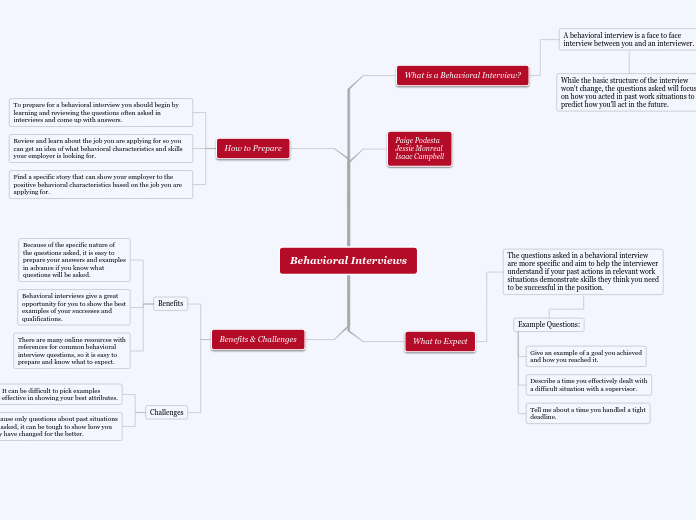Behavioral Interviews
Benefits & Challenges
Challenges
Because only questions about past situations
are asked, it can be tough to show how you
may have changed for the better.
It can be difficult to pick examples
effective in showing your best attributes.
Benefits
There are many online resources with
references for common behavioral
interview questions, so it is easy to
prepare and know what to expect.
Behavioral interviews give a great
opportunity for you to show the best
examples of your successes and
qualifications.
Because of the specific nature of
the questions asked, it is easy to
prepare your answers and examples
in advance if you know what
questions will be asked.
How to Prepare
Find a specific story that can show your employer to the positive behavioral characteristics based on the job you are applying for.
Review and learn about the job you are applying for so you can get an idea of what behavioral characteristics and skills your employer is looking for.
To prepare for a behavioral interview you should begin by learning and reviewing the questions often asked in interviews and come up with answers.
What to Expect
The questions asked in a behavioral interview
are more specific and aim to help the interviewer
understand if your past actions in relevant work
situations demonstrate skills they think you need
to be successful in the position.
Example Questions:
Tell me about a time you handled a tight
deadline.
Describe a time you effectively dealt with
a difficult situation with a supervisor.
Give an example of a goal you achieved
and how you reached it.
Paige Podesta
Jessie Monreal
Isaac Campbell
What is a Behavioral Interview?
A behavioral interview is a face to face
interview between you and an interviewer.
While the basic structure of the interview
won't change, the questions asked will focus
on how you acted in past work situations to
predict how you'll act in the future.









